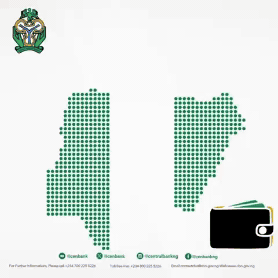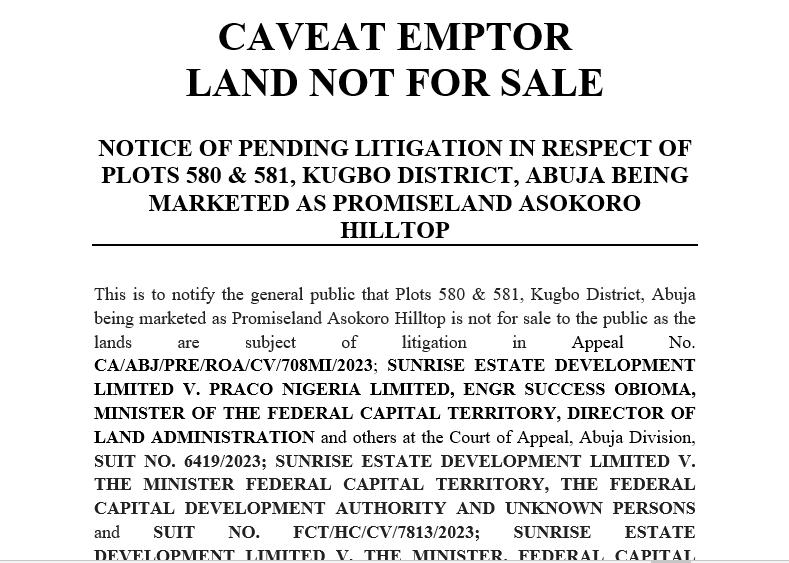The Federal High Court in Abuja, on Wednesday, dismissed a suit seeking an order restraining Haruna Audi from parading himself as All Progressives Congress (APC)’s candidate for 2026 Bwari Area Council chairmanship election.
Justice Emeka Nwite, in a judgment, held that the suit filed by the plaintiff, Joshua Ishaku, was statue barred, having being filed outside the 14 days prescribed by Section 285(9) of the 1999 Constitution (as amended).
Justice Nwite held that a pre-election matter ought to be filed within 14 days of the cause of action.
The judge said that contrary to Ishaku’s argument that the cause of action arose on July 24, the day he became aware that APC forwarded Audi’s name to INEC, the judge held that the action occured on June 30 as contended by APC and Audi.
“It is immaterial the date the plaintiff got the information. What is material was the date the action was done and the time begins to run thereafter,” he said.
The judge agreed that the APC’s National Working Committee (NWC) upheld the report of the Primary Election Appeal Committee of the party and forwarded Audi’s name to INEC as candidate who secured the highest votes of 38 in the poll.
He, therefore, upheld Audi’s preliminary objection filed by his lawyer, Mahmud Magaji, SAN.
Justice Nwite held that having been invited by the appeal committee and failed to honour the invitation, Ishaku’s claim that he was denied a fair hearing was untenable.
The News Agency of Nigeria (NAN) reports that Ishaku had, in the originating summons, marked: FHC/ABJ/CS/1494/2025, sued APC, Audi and INEC as 1st to 3rd defendants respectively.
In the suit filed by Ogwu Onoja, SAN, the plaintiff sought nine reliefs.
He sought a declaration that it was null and void and contrary to the APC’s constitution, the APC’s guidelines for conduct of area council primary and the Electoral Act for Audi’s name to be forwarded to INEC by the party vide a letter dated July 14 as the candidate of the party for the election slated for 2026.
He sought an order directing the 1st defendant (APC) to forward the name of the plaintiff (Ishaku) to the 3rd defendant (INEC) as its chairmanship candidate for Bwari Area Council in the 2026 area council chairmanship election.
The plaintiff sought an order directing INEC to publish his name as the candidate of APC for the forthcoming poll, among others.
He told the court that he was the winner of the primary election conducted on June 25 at the area council.
But in a preliminary objection filed by Magaji, Audi (2nd defendant) sought an order striking out the suit for want of jurisdiction.
He also sought an order dismissing the suit for being statute barred.
In his grounds of argument, Magaji said Ishaku had claimed he was the purported winner of the elections.
Magaji said the NWC of the APC, after a meeting held on June 30, upheld the primary election appeal committee’s report and the result of the primary election result and issued a certificate of return to Audi on same day.
The lawyer, however, argued that Ishaku’s cause of action arose on June 25 and accrued, at the latest, on June 30.
He argued that the instant suit was commenced July 24, a clear 24 days after the accrual of the cause of action, which was 10 days beyond the constitutional limit.
He said by virtue of Section 285(9) of the 1999 Constitution (as altered), the suit was incurably incompetent, and the court was divested of jurisdiction to entertain same.
According to him, this court lacks the competence and jurisdiction to entertain this case.
The APC, in its preliminary objection, prayed the court to determine whether the instant suit did not border on internal affairs of political parties, among others.
Delivering the judgement, the judge said issues to be determined include whether the suit was statute barred, whether it bordered on internal party’s affairs, whether Ishaku had exhausted internal mechanism for settling disputes, and whether his claim challenging the forward of Audi’s name was premature and incompetent.
Justice Nwite upheld the argument of the defence that the suit was statue barred.
The judge, however, resolved the issue on whether it was internal affairs of the party in favour of Ishaku.
On whether Ishaku had exhausted the party’s internal mechanism for resolving dispute, the judge faulted Ishaku’s claim.
He held that the aggrieved aspirant had failed to show how he had taken step to explore the option.
The judge, who held that the instant suit was premature, said he found it unnecessary to consider issue number four in the preliminary objection.
“This court is hereby robbed of the jurisdiction to consider this suit.
“This suit is hereby dismissed for lack of jurisdiction,” he ruled.
On the substantive matter, Justice Nwite held that Ishaku had failed woefully to prove the allegations in the case.
“I am of the view and I do hold that all the paragraphs in the affidavit cannot be relied upon unless this instant suit is refiled.
“The plaintiff has failed woefully to prove the allegations.
“Accordingly, this suit is hereby dismissed,” the judge said.

 News2 days ago
News2 days ago
 News2 days ago
News2 days ago
 News6 days ago
News6 days ago




























